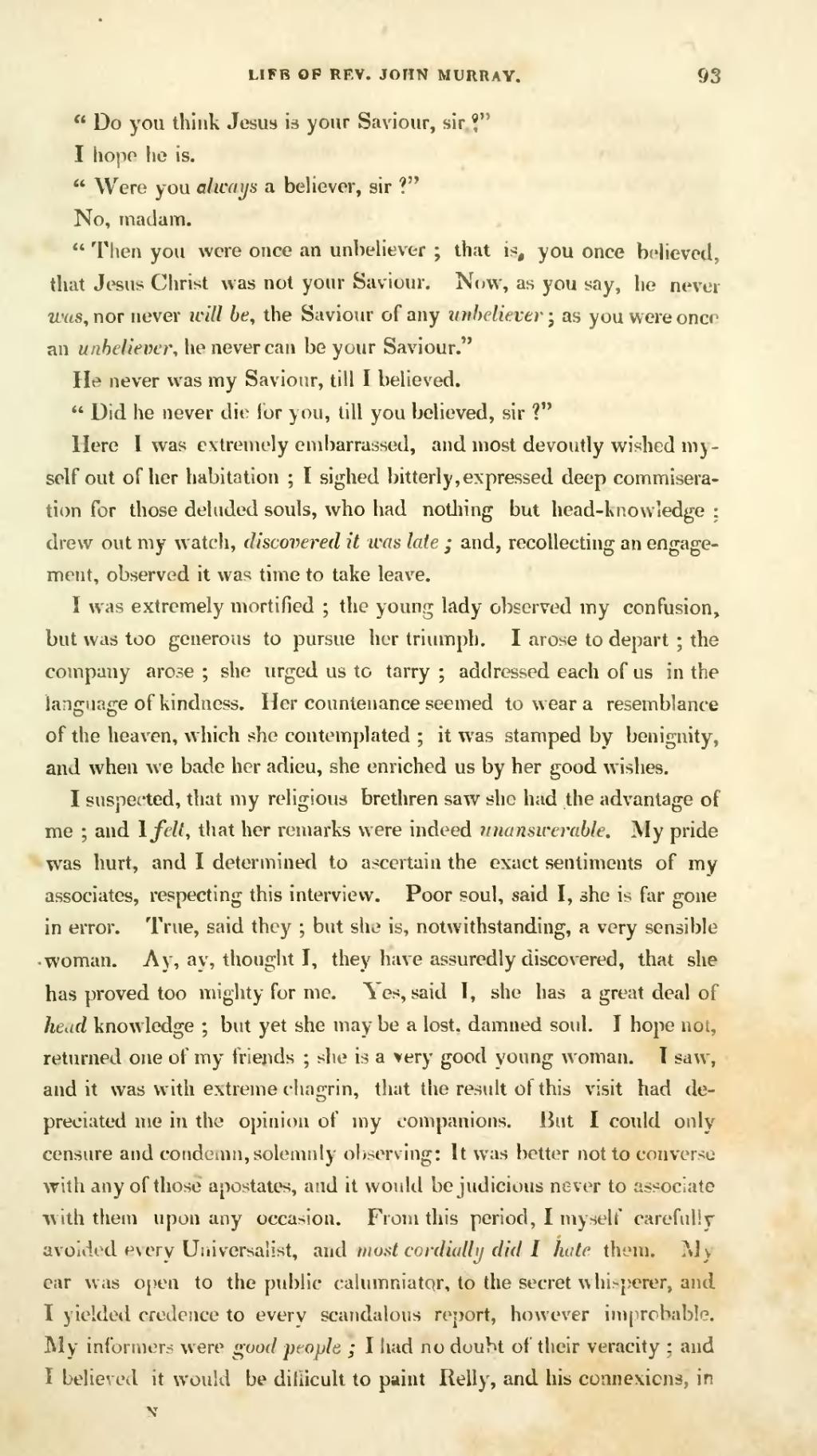"Do you think Jesus is your Saviour, sir?"
I hope he is.
"Were you always a believer, sir?"
No, madam.
"Then you were once an unbeliever; that is, you once believed, that Jesus Christ was not your Saviour. Now, as you say, he never was, nor never will be, the Saviour of any unbeliever; as you were once an unbeliever, he never can be your Saviour."
He never was my Saviour, till I believed.
"Did he never die for you, till you believed, sir?"
Here I was extremely embarrassed, and most devoutly wished myself out of her habitation; I sighed bitterly, expressed deep commiseration for those deluded souls, who had nothing but head-knowledge; drew out my watch, discovered it was late; and, recollecting an engagement, observed it was time to take leave.
I was extremely mortified; the young lady observed my confusion, but was too generous to pursue her triumph. I arose to depart; the company arose; she urged us to tarry; addressed each of us in the language of kindness. Her countenance seemed to wear a resemblance of the heaven, which she contemplated; it was stamped by benignity, and when we bade her adieu, she enriched us by her good wishes.
I suspected, that my religious brethren saw she had the advantage of me; and I felt, that her remarks were indeed unanswerable. My pride was hurt, and I determined to ascertain the exact sentiments of my associates, respecting this interview. Poor soul, said I, she is far gone in error. True, said they; but she is, notwithstanding, a very sensible woman. Ay, ay, thought I, they have assuredly discovered, that she has proved too mighty for me. Yes, said I, she has a great deal of head knowledge; but yet she may be a lost, damned soul. I hope not, returned one of my friends; she is a very good young woman. I saw, and it was with extreme chagrin, that the result of this visit had depreciated me in the opinion of my companions. But I could only censure and condemn, solemnly observing: It was better not to converse with any of those apostates, and it would be judicious never to associate with them upon any occasion. From this period, I myself carefully avoided every Universalist, and most cordially did I hate them. My ear was open to the public calumniator, to the secret whisperer, and I yielded credence to every scandalous report, however improbable. My informers were good people; I had no doubt of their veracity; and I believed it would be difficult to paint Relly, and his connexions, in
